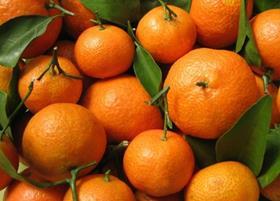
Korean researchers have developed a new antimicrobial spray that can “significantly” extend the shelf-life of produce such as strawberries and mandarins.
Published this week in the Korea Advanced Institute of Science and Technology (KAIST), the study uses a new spraying technique and takes seconds to apply a nanometer-thick edible film, made from of plant-derived polyphenol, onto perishable produce and other surfaces.
The process allows commodity goods such as shoe insoles and fruit to be coated in a controlled way, researchers said.
Spray-coated mandarins and strawberries showed significantly-prolonged postharvest shelf life of over 28 days and 58 hours respectively, results found, while uncoated fruit decomposed and became mouldy under the same conditions.
The coating can be used to prolong postharvest shelf life of produce as well as provide additional nutrients, the study said.
Lead author Professor Insung Choi said: 'Nanocoating technologies are still in their infancy, but they have untapped potential for exciting applications. As we have shown, nanocoatings can be easily adapted for several different uses, and the creative combination of existing nanomaterials and coating methods can synergize to unlock this potential.'
While coating to extend shelf life is not a new concept, the study said a spraying technique could help commercialise the process as it is more efficient.
The technology has been patented and is currently being commercialised for widespread use as a means of preserving produce.
Polyphenols are used as a nontoxic food additive and are known to exhibit antibacterial capabilities, the study said.



